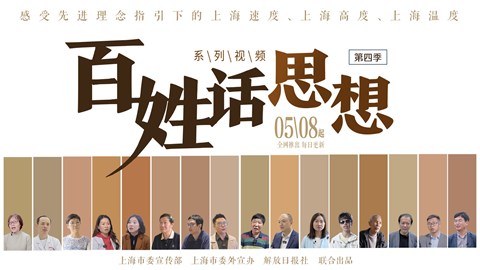Citizens pay respects to the departed with 'cloud' tributes

An online memorial park
It is a special Qingming Festival holiday for residents in Shanghai as they turn to online channels to pay "cloud" tribute to their beloved deceased family members.
Cemeteries in Shanghai said over the weekend that they have witnessed a surge of online tomb sweepers recently.
Shanghai resident Angela Lin and her parents have kept the tradition of visiting a tomb in Qingpu District to pay respects to her deceased grandparents during the holiday for several years. She had secured a reservation slot this year as tombs originally required reservations for visits during peak days of the festival.
But on March 28, Shanghai called a halt to on-the-spot tomb sweeping at all cemeteries through April 5 to curb the spread of COVID-19 infection.
Residents can either pay respects online, or ask cemetery staff to sweep tombs on their behalf, the Shanghai Civil Affairs Bureau said.
Laying a bunch of virtual flowers at her grandparents' tomb via the cemetery's online platform, Lin uploaded some photos of them as well.
"It is a special period and we are unable to pay on-the-spot homage, but we understand the lockdown decision," she said.

Winding paths and blossom
This year's Qingming Festival, or tomb-sweeping day, a traditional time for Chinese people to pay respects to their ancestors, falls on April 5. Sunday is the first day of the three-day Qingming Festival holiday.
During last year's Qingming peak season, Shanghai's 54 cemeteries and columbariums were visited by 3.43 million people.
"It is the first time I try this way of respect, and it provides some kind of spiritual comfort," said Lin. "The deceased family members will never be forgotten, and I really miss my grandparents.
"When the pandemic wanes, our family will visit the cemetery in person. Online tribute is a temporary option."
The COVID-19 pandemic has changed people's memorial ways to some extent.
Virtual memorial parks are being created by Shanghai's cemeteries for the first time this year.
The virtual memorial parks replicate the real ones to a high degree but incorporate more functions with a real virtual interaction. It simulates the scene of a real park with lush greenery and flying birds.
In the virtual world, people can plant greenery and flowers in front of the gravestone of their late beloved, change the climate of the area, and even raise a pet to accompany the departed souls.

The humanism memorial museum inside Fushouyuan Cemetery.
As of Saturday, Shanghai Fushouyuan Cemetery said it had recorded 264,138 tomb-sweeping visits on its "cloud" channel during this year's Qingming period, compared with 49,523 during last year's Qingming period.
Joining hands with Shanghai Stamp, Coin and Card Exchange, the cemetery has also launched digital collections such as stamps in memory of the festival for the first time.
The stamps feature photos of revolutionary and commemorative spots including the New Fourth Army Square and Shanghai Humanism Memorial Museum inside the cemetery.
By scanning a QR code on the digital stamps, people will obtain information related to the two sites and are able to make "cloud" postcards to remember the revolutionists.
A total of 7,675 New Fourth Army soldiers' names are engraved on a wall at the cemetery. These include military leaders such as Ye Ting (1896-1946), a military strategist and the first commander of the New Fourth Army, Chen Yi (1901-1972), Shanghai's first mayor after the founding of the People's Republic of China and a commander of the New Fourth Army, and General Su Yu (1907-1984).
"Online tomb-sweeping services are being increasingly accepted by city residents since Qingming Festival in 2020 when they were first launched," said Yu Hao, who is in charge of the Fushouyuan Cemetery digital platform.
"Each family has their own online memorial hall, which is a private space for them to 'talk' to their deceased family members."
Family members are able to "light" candles, "lay" flowers, edit the biographical details of their relatives, upload photos and videos, and offer virtual sacrifices and commemorative items via online platform.
They were firstly used by people who were abroad and unable to visit the site, he added.
"Such homage breaks the restriction of space and time," said Yu.

















